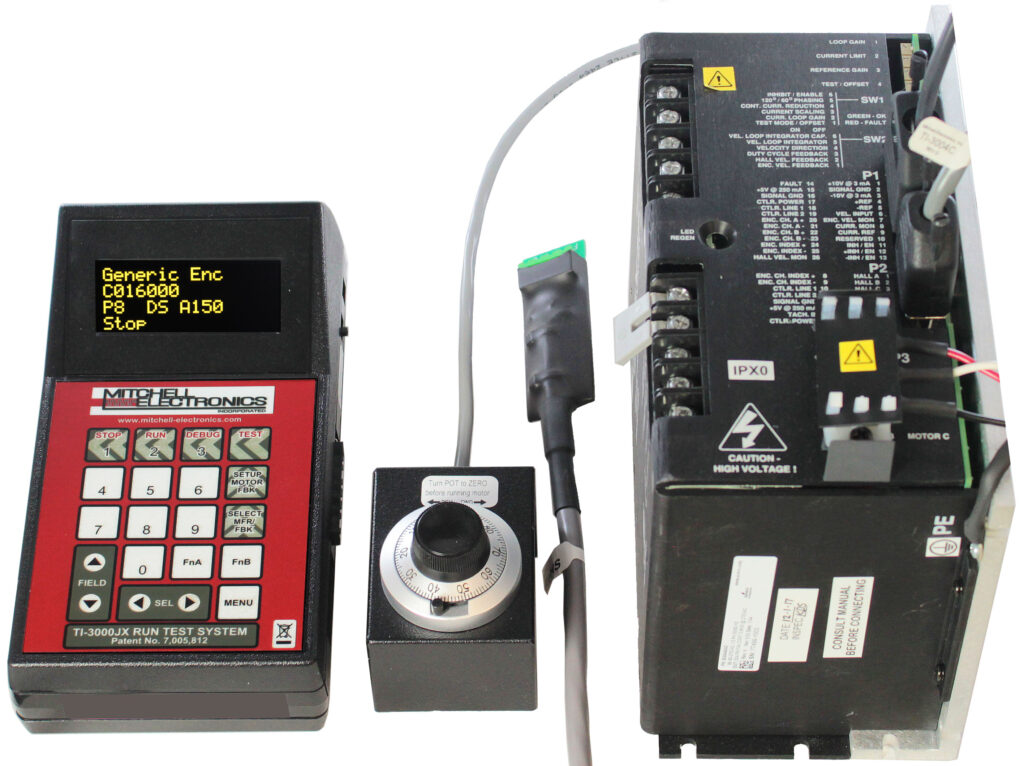Brushed Servo Motors vs. Brushless Servo Motors: Which Do I Need?
When considering which type of servo motor to use, the choice often boils down to a choice between brushed servo motors or brushless servo motors. So, how do you know which is right for you? The answer is of course: It Depends.
While each has its advantages and disadvantages, your best option largely relies on your specific application requirements. To help make your decision easier, let’s take a closer look at the advantages and disadvantages of brushed and brushless servo motors.
Brushed Servo Motors
Brushed servo motors have a wound rotor with a commutator and brushes that provide electrical contact to the rotor. When voltage is applied to the rotor through the brushes, it generates a magnetic field. This causes the motor to turn.
What are the Advantages of Brushed Servo Motors?
- Simple: Brushed motors are straightforward in design, making them easier to understand, repair, and maintain. This simplicity often results in lower initial costs.
- Affordable: Brushed motors are typically less expensive than their brushless counterparts. This makes them an attractive option for cost-sensitive applications.
- High Torque: Brushed motors offer excellent torque at low speeds. This makes them suitable for applications that require precise control in low-speed or low-velocity scenarios. Examples include robotics or simple automation systems.
- Inherent Back Electromagnetic Interference: The brushes and commutator provide some inherent damping that can help in applications where overshooting and resonance need to be minimized.
What are the Disadvantages of Brushed Servo Motors?
- Limited Lifespan: The brushes in brushed servo motors wear out over time, leading to maintenance and replacement time and costs. This can be a significant drawback in applications requiring continuous or long-term operation.
- Electromagnetic Interference: Brushes create electrical noise during operation, potentially causing EMI issues in sensitive applications.
- Lower Efficiency: Because of the friction and wear associated with the brushes, brushed servo motors tend to be less efficient than brushless servo motors.
Read: Common Problems When Attempting Servo Motor Repairs Without the Proper Tools
Brushless Servo Motors
A more recent innovation, brushless servo motors are gaining rising popularity in high-performance applications. In place of brushes, these motors use electronic commutation to control the magnetic fields.
What are the Advantages of Brushless Servo Motors?
- Longer Lifespan: Brushless servo motors have a longer lifespan because they lack brushes that wear out. This makes them suitable for applications that require continuous, reliable operation.
- High Efficiency: Brushless motors are highly efficient, resulting in less energy waste and lower operating costs.
- Low Maintenance: Since there are no brushes to replace, brushless motors require minimal maintenance. This reduces downtime and operational costs.
- Precise Control: Brushless servo motors provide precise control and high torque-to-inertia ratios, making them ideal for applications that demand accuracy and dynamic performance. They are also very compact and provide a great deal of torque for their size.
What are the Disadvantages of Brushless Servo Motors?
- Higher Initial Cost: Brushless servo motors can be more expensive than brushed servo motors. This makes them less suitable for budget-constrained lower-precision applications.
- Complex Electronics: The electronic commutation system in brushless servo motors can be more complex, requiring feedback devices such as hall effect pickups, encoders, or resolvers. Consequently this may require specialized knowledge for setup and troubleshooting.
Read: 5 Mistakes to Avoid with Servo Motor Maintenance and Repair
Brushed vs. Brushless: What is Right for you?
The choice between brushed and brushless servo motors depends on the specific needs of your application. If you require a cost-effective solution for low-speed, relatively simple tasks, a brushed servo motor may be the way to go. On the other hand, if you need long-term reliability, high efficiency, and precise control for high-performance applications, the investment in brushless servo motors is likely justified.
The bottom line is your decision should be based on considerations such as budget, expected lifespan, efficiency, and the level of control required for your project.
You can also download The Quick Reference Guide to Servo Motor Maintenance and Repair. Inside this in-depth guide, you’ll find insights into:
- Diagnosing common servo issues
- Understanding common servo error codes
- Knowing what you can fix in-house and what needs to be sent out for repair
- Identifying tools you’ll need to make repairs in-house
- Learning how to find the right repair shop for you



